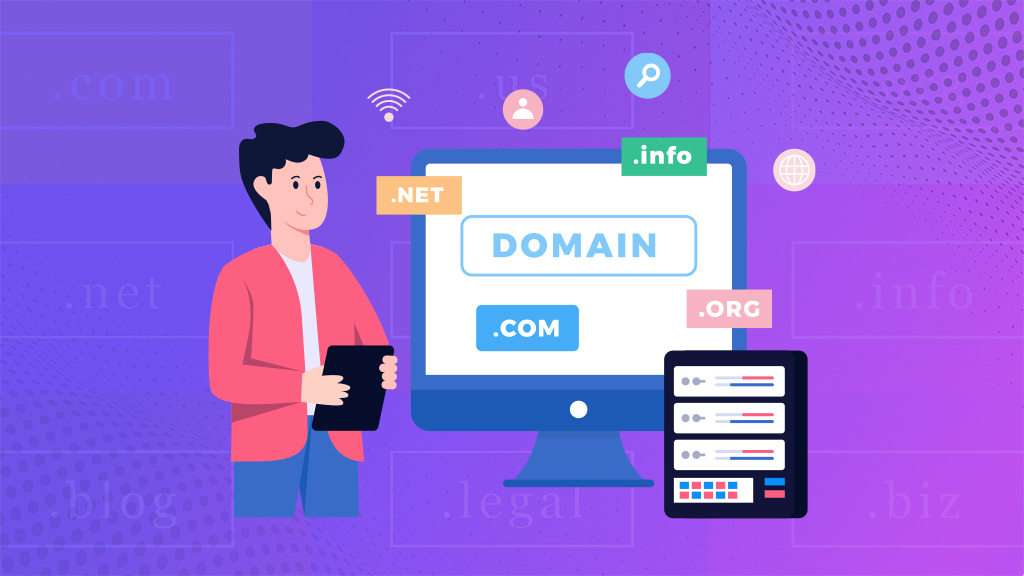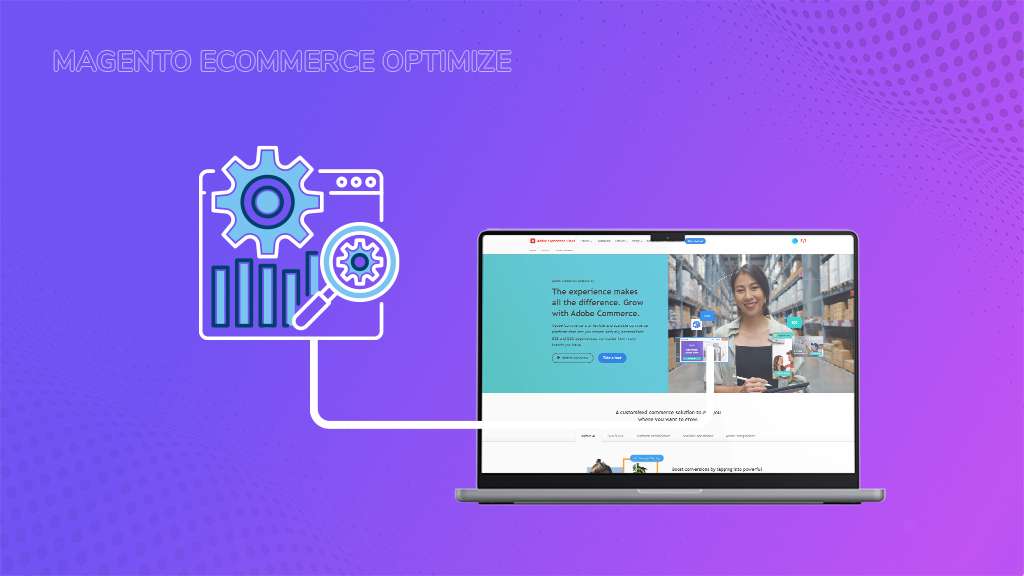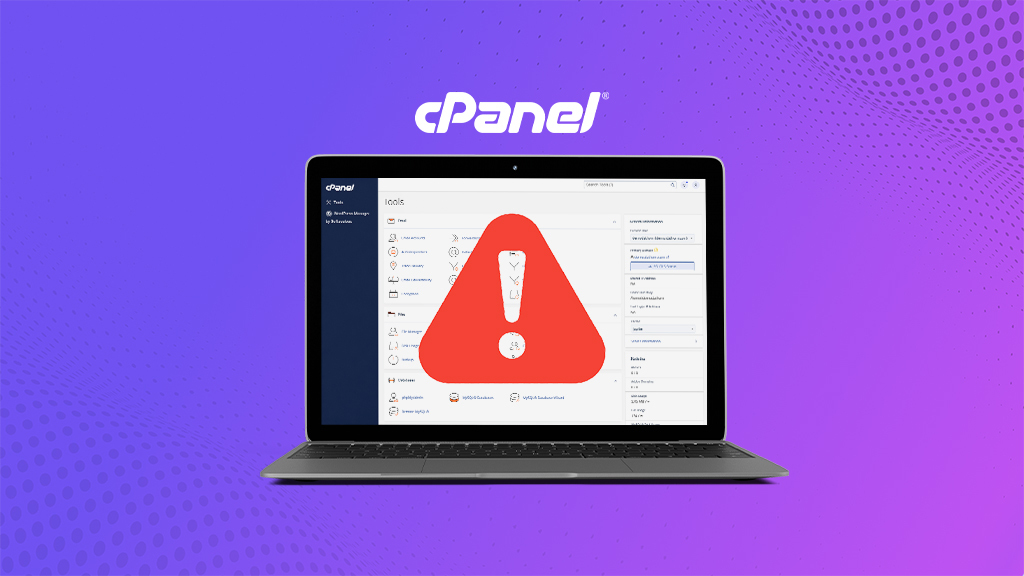
In the ever-expanding Internet domain, domain name extensions are the virtual identity of web pages. In addition to serving as a simple suffix for a web address, these extensions are also capable of communicating a website’s purpose, credibility, and even geographical relevance. In this guide, we will unravel the mysteries of domain extensions and give you the knowledge to choose the perfect extension for your online business.
Importance of Domain Extensions
Think of domain extensions as the context language of the Internet. Just as the end of a book title gives you a glimpse of its genre, domain extensions give users a glimpse of the purpose of a website. This context can make the difference between a click and a pass, making domain extensions an essential part of your digital presence.
1. First Impressions Matter
Domain extensions are often the first thing users see in search results or when entering a web address directly. Like a book cover, it creates a first impression of the character and credibility of your website. Furthermore, well-chosen extensions can inspire trust and curiosity, encouraging users to click.
2. Relevance and Context
Domain names indeed provide immediate context about the content or purpose of a website. For instance, “.com” typically represents commercial ventures, “.org” signifies non-profits, and “.edu” is used by educational institutions. Moreover, this relevance helps users quickly identify whether a site aligns with their interests.
3. Brand Identity
They can contribute to your brand identity and image. This is an opportunity to reinforce your brand, industry, or mission values. For example, a photography studio might use “.photo” to highlight its expertise, creating a memorable online presence.
4. User Trust and Perception
Familiar domain name extensions like “.com” are uniquely ingrained in user behaviour. Users often associate these extensions with reputable and reputable websites. Choosing a recognizable extension can inspire trust and credibility, thereby promoting positive user perception.
5. Geo-Targeting and Localization
A country code top-level domain (ccTLD) like “.uk” or “.ca” indicates the geographical direction of the website. If your business primarily caters to a particular country or region, using a ccTLD can increase your local search visibility and resonate with your target audience.
6. Differentiation and Innovation
Such top-level domains (ngTLDs) have expanded domain coverage. These extensions go beyond traditional options and allow you to stand out in your industry. They can showcase your niche, such as “.tech” for tech or “.blog” for bloggers, setting you apart from the competition.
Common Types of Domain Extensions
1. Generic Top-Level Domains (gTLDs)
In the complex tapestry of domain names, common top-level domains (gTLDs) are the common thread that weaves the digital landscape. Likewise, these gTLDs are the basis of web addresses, including familiar and well-known extensions such as “.com”, “.net” and “.org”. Let’s dig deep into gTLDs to understand their importance and the versatility they bring to any type of website.
1.1 Meaning and Examples of gTLD
The generic top-level domain (gTLD) is the foundation of the domain name hierarchy, located at the top of the domain name system pyramid. They were one of the first domains to emerge in the domain ecosystem, and over time their meanings have evolved far beyond their original purpose. These gTLDs go beyond a specific geographical meaning or function, serving a variety of website types and purposes.
1.2 Popular gTLDs and Their Specific Uses
Let’s explore a few renowned gTLDs and the roles they play in the digital realm:
- .COM
This extension is the true embodiment of flexibility and adaptability. Originally designed for commercial entities (“com” means “commercial”), “.com” has far exceeded its original meaning. Today, this is the default choice for all types of businesses, from start-ups to multinational corporations. Basically, its wide recognition and reliability have made it the go-to choice for websites geared towards reaching a global audience.
- .ORG
gTLD “.org” was originally intended for non-profit organizations. Over the years, it has become synonymous with a mission-oriented approach and commitment to social or charitable causes. Choosing the “.org” extension can not only communicate your organization’s dedication to a higher purpose, but also make it an ideal choice for NGOs, charities, and advocacy groups.
- .NET
Derived from “network”, the “.net” gTLD was originally intended for networking-related websites. However, his versatility has helped him find his place in various niches. “.net” is especially relevant for technology-oriented websites, online platforms, and communities. Above all, its combination of connectivity and technology resonates with audiences looking for digital innovation and interaction.
2. Country Code Top-Level Domains (ccTLDs)
In such a vast expanse of the Internet, where websites connect across borders, country code top-level domains (ccTLDs) are emerging as digital passports for online identities. These two-letter extensions, such as “.us” for the United States and “.ca” for Canada, carry the essence of geographical identity. In this exploration, we’ll explore the nature of ccTLDs – their definition, purpose, and central role in regional targeting and branding.
2.1 Definition and Purpose of ccTLDs
Country code top-level domains (ccTLDs) are distinct extensions assigned to specific countries or regions based on the ISO 3166-1 alpha-2 two-letter code. On the other hand, these extensions denote a website’s connection to a particular geographical location, reflecting the origin or orientation of the entity it represents.
The main purpose of the ccTLD is to facilitate the classification and localization of the area on the Internet.
One of the most important roles of ccTLDs is to strengthen the relationship between the website and its target audience by conveying a sense of belonging and trust. When users come across a ccTLD relevant to their country or region, it drives an immediate connection as they anticipate content that is relevant and applicable to their specific needs.
2.2 Examples of ccTLDs and Their Significance
Let’s look at some examples to understand how ccTLDs work in practice and the impact they can have:
- .UK
ccTLD “.uk” sums up the essence of the UK. UK businesses often choose this extension to emphasize their geographical focus and establish a local presence.
A website with a “.uk” domain signals to its viewers that it caters specifically to the UK market. This can have a significant impact on user trust as local audiences tend to feel more comfortable with businesses close to their location.
- .CA
For businesses in Canada, ccTLD “.ca” is a powerful tool for both brand visibility and search. By adopting the “.ca” extension, Canadian companies can particularly demonstrate their commitment to the local market. Additionally, search engines often view ccTLDs as a regionally relevant metric, which can increase a site’s visibility in local search results. When Canadian users search for the service, websites with the domain “.ca” are more likely to rank higher, increasing their chances of being discovered.
3. New Generic Top-Level Domains (ngTLDs)
These top-level domains or (ngTLDs) are taking place as the dynamic ropes of innovation and originality. These extensions, such as “.blog” and “.app”, breathe new life into the domain landscape, providing a new way to communicate a website’s purpose, industry, or identity. Embark on a journey to discover the essence of ngTLDs: their meaning, benefits, and potential to revolutionize brands online.
3.1 Explanation of ngTLDs and Their Benefits
Such domain extensions have emerged in response to the growing demand for unique and descriptive domain names. Unlike traditional gTLDs like “.com” or “.org”, ngTLD offers a remarkable opportunity to create web addresses that are not only easy to remember, but also clearly indicate the content or purpose of the website. These extensions exemplify the growth of the Internet, where specificity and relevance prevailed.
One of the main advantages of ngTLD is their outstanding ability. Among countless websites, ngTLD stands out by communicating exactly what visitors can expect. For example, the “.blog” extension tells users that a site hosts blog content, paving the way for a differentiated and targeted browsing experience. This clear expectation can indeed lead to higher user engagement and lower bounce rates.
3.2 Examples of ngTLDs Available and Their Specific Industries
The beauty of ngTLD is its ability to summarize the essence of a web page in just a few characters.
Here are some examples that demonstrate the diversity and power of ngTLD:
- .blog
Tailor-made for the creative minds of the digital world, “.blog” is a beacon for bloggers and writers. This ngTLD subtly encapsulates the essence of content that users can expect: poignant stories, deep reflections, and compelling stories.
Whether it’s a personal blog or a professional content hub, the “.blog” extension instantly communicates the core of the website, making it an attractive choice for those looking to establish a background. Since the virtual platform is for personal expression.
- .application
In the field of applications and digital solutions, “.app” appears as a symbol of interactivity and cohesion. This NgTLD is a developer playground, signaling a virtual space where users can explore, experiment, and interact with innovative software. By adopting the “.app” extension, developers can increase the visibility of their apps and showcase their features, thereby encouraging downloads and user discovery.
Factors to Consider When Choosing a Domain Extension
1. Business Type and Target Audience
When it comes to your online presence, a domain name extension is more than just a string of characters: it’s a digital representation of your business identity. See how your domain extension becomes a beacon that guides users to your virtual door, and why it matters whether you serve a local or global audience.
i. How do domain extensions reflect your business?
Think of your domain extension as a virtual showpiece in the bustling Internet marketplace. Just as physical signage conveys the essence of a physical store, domain extensions convey the industry focus of your business. For example, if you are passionate about the world of technology, the “.tech” extension will become your digital badge. It instantly informs visitors that your expertise lies in the areas of innovation, gadgets, and digital solutions. This simple extension can consequently become your niche affirmation, laying the foundation for your website content.
ii. Appeal to Local or Global Market
Imagine two situations: a charming French bakery located in the heart of Paris and an advanced software company with a global customer base. In the first case, a country-specific extension like “.fr” fits perfectly into the bakery’s identity, emphasizing local charm and authenticity. On the other hand, a software company that wants to reach an international audience finds harmony in a generic extension like “.com”. This flexible extension is explicitly suitable for businesses that go beyond borders and serve a wide range of users.
2. Brand Identity and Recognition
An online domain name is a canvas on which your brand identity can shine to its fullest. Your domain extension is a palette of colours that you can use to paint a vivid picture of your brand. Let’s explore how your selection of extensions can become an extension of your brand.
i. Choosing a Domain Extension That Aligns With Your Brand
Branding is all about cohesion, from your logo to your tone. Your domain extension is an extension of this association. If your brand exudes creativity and artistic expression, the “.studio” extension will seamlessly expand your brand voice. Imagine an art studio with a domain like “Creativity. studio”. This combination reinforces the essence of your brand, leaving a lasting impact on your visitors. Therefore, it’s not just an address; it is the expression of your values and brand identity.
ii. Opportunities for Branding With Specific Extensions
In the vast ocean of the web, standing out is an art. Imagine a design company boldly adopting the “.design” extension, which leads to a web address like “design. genius”. It’s not just a URL; it’s a statement this is your chance to showcase your agency’s creative talent, making it unforgettable for anyone who sees it. In fact, that’s the beauty of purpose-built extensions: they’re not just convenient; they are powerful tools for branding.
3. SEO and Searching Habits
Your online presence is intrinsically linked to your visibility in the search engines. While domain extensions themselves do not directly affect SEO rankings, they do play a central role in user behaviour and trust.
i. Impact of Domain Extension on SEO Rankings
The link between domain extensions and SEO is indirect but powerful. Relevant domain extensions can improve user trust and click-through rates. For example, if a user searches for photography services and comes across the domain “.photo”, that is like finding a familiar road sign. Extensions don’t determine your rankings, but they do influence users’ decisions to further explore.
ii. User Preferences and Familiarity with Certain Extensions
Familiarity builds trust, and “.com” is the epitome of familiarity in the digital realm. This extension has become a common icon on websites. When users see the domain “.com”, they are more likely to consider it trustworthy and worth exploring. This familiarity stems from decades of Internet use and is a psychological aspect that should not be underestimated.
Popular Domain Extensions for Different Types of Businesses
In the dynamic world of domain extensions, finding the perfect fit for your business depends on choosing the right outfit for a special occasion. Each extension especially tells a story, and for different types of businesses, the choice becomes a strategic statement. See how different businesses can use such extensions to create a powerful online presence.
1. eCommerce and Online Stores
Recommended Extensions for Online Selling
For eCommerce ventures, the right domain extension can be a game-changer. Consider ngTLDs like “.shop” or “.store.” These extensions encapsulate your purpose in just a few characters, instantly conveying to visitors that they’re stepping into an online shopping realm. These extensions serve as a virtual storefront, beckoning customers to explore and make purchases.
2. Local Businesses and Service Providers
For local businesses, the Internet indeed provides the ability to connect with customers nearby. That’s where country code top-level domains (ccTLDs) come in. An extension like “.nyc” can be a powerful tool for a New York-based business. It acts as a digital beacon, significantly directing local users to your services and offers.
3. Non-Profit Organizations
Non-profits have a unique opportunity to communicate their mission through domain extensions. In general, the “.org” extension provides an immediate sense of trust and dedication to a cause. It is a universally recognized symbol, making it the ideal choice for organizations striving to make a positive impact.
Special Considerations and Limitations
1. Legal and Trademark Issues
i. Potential Conflicts with Certain Domain Extensions
In the search for the perfect domain name, prioritize uniqueness to avoid conflicts with existing brands. This foresight can save you legal trouble later on and ensure a smooth online journey.
ii. Ensuring the Protection of Brand Integrity
Once you’ve secured your ideal domain, it’s essential to protect it from abuse. Overall, this involves securing your domain variations to prevent fraudulent activity that could tarnish your brand integrity.
2. Availability and Pricing
i. Availability of Preferred Extensions
The domain range is huge, but your favorite extension may already be claimed. It’s wise to have alternatives available in your arsenal to ensure you’re ready even if you don’t have a first choice.
ii. Cost Implications of Different Domain Extensions
While traditional extensions have standard costs, ngTLD can have premium fees. Before making a decision, weigh the investment and the benefits. Sometimes the uniqueness and specificity of the plugin are worth the extra investment.

Introducing BigCloudy: Your Domain Destination
Are you ready to embark on the journey of branding and online presence? Look no further than BigCloudy, your trusted partner in securing perfect domain name extensions. With a variety of options including .com, .net, .org, and .in, we surely provide the platform to paint your digital identity.
Altogether, let’s explore the world of possibilities that BigCloudy brings:
Domain Option 1– .com
A timeless classic that needs no introduction. Capture the essence of universality with the .com extension. BigCloudy explicitly offers this iconic extension for $14.95/year, providing you with a platform to establish a globally recognized online presence.
Domain Option 2– .net
When networking is your core business, .net becomes your conduit. Secure your digital presence with the .net extension, which costs $16.02/year. BigCloudy ensures that your network finds its rightful place by all means in the digital realm.
Domain Option 3 – .org
For those dedicated to a worthy cause or a mission-driven business, .org is your business card. BigCloudy lets you set yourself apart with a .org extension for $16.45/year. Leave your mark on the online scene with authenticity and determination.
Domain Option 4- .in
When local pride meets global potential, .in steps in. Special mention to India, this extension will become your gateway to a dynamic market. BigCloudy offers the .in extension for an exclusive price of $8.56/year. Connect with Indian audiences while aiming for the stars.
Conclusion
In the field of digital identity, domain name extensions have unsurpassed power. They encapsulate your essence, tell your story, and shape user perception. In conclusion, as you begin your online adventure, remember that choosing the perfect domain extension is not just about fit, it’s about standing out. Your digital adventure begins with a few characters after the period.









